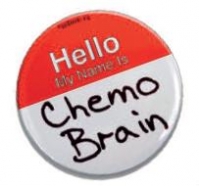For over a decade cancer patients have complained of difficulty with concentration and memory during chemotherapy treatments. Some survivors even experienced it well after their treatment had ended. Other complaints included persistent fatigue, depression, difficulty with multitasking, and poor sleep.
While cancer treatments have resulted in longer intervals of disease-free survival after treatment has ended, the number of survivors who want, or need, to quickly return to their pre-diagnosis routines and lifestyle is increasing. The transition back into a normal lifestyle is complicated by the post-treatment effects as a result of toxic and prolonged treatment from surgery, radiation, chemotherapy or biotherapy.
Chemobrain, also called brain fog, impairs the survivors executive functioning (making decisions, keeping track of things, multitasking, etc), information processing speed (where the brain is working but the survivor feels like they are in slow motion), language or speech recognition (when the survivor cannot remember the right words to use), and attention span and memory recall (they are easily distracted).
Click here to read the entire article.







